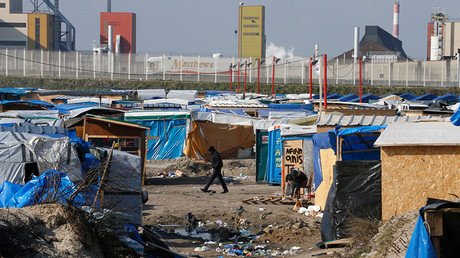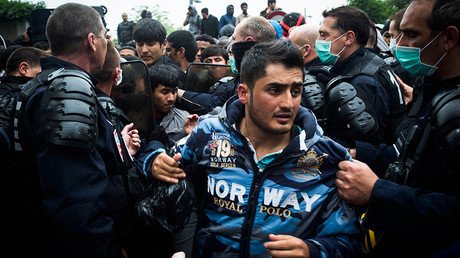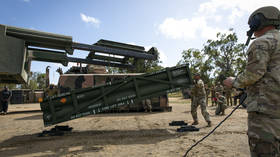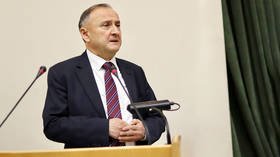100s of migrants evicted from makeshift camp in Paris, as city plans 2 new major refugee centers
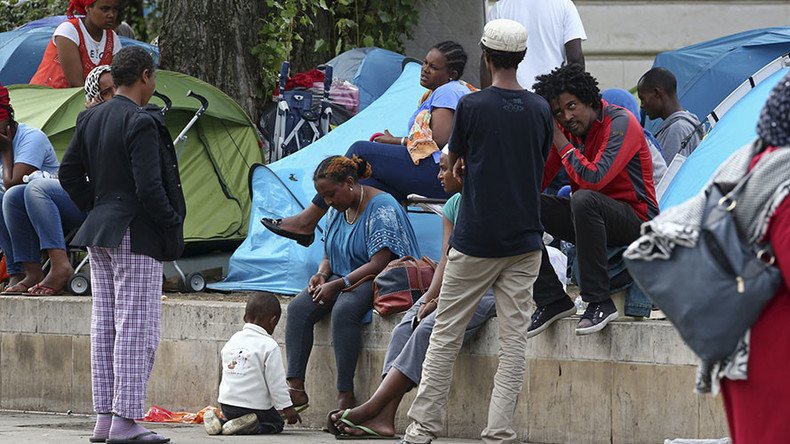
A few hundred migrants have been removed from a makeshift camp in Paris amid growing public discontent with a flood of asylum seekers and the accompanying rise in crime, as well as the mayor’s decision to open two new refugee camps in France’s capital.
The refugees had been living in tents right on Flandre Avenue in the 19th district in the northern part of Paris.
On Tuesday morning at about 9:30 am local time (7.30 GMT), they were removed by riot police, L’Independant newspaper and witnesses reported.
Nouvelle évacuation d'un campement de plusieurs centaines de #migrants à #Parishttps://t.co/0DshqcXUNSpic.twitter.com/V6uidGQ3WV
— RT France (@RTenfrancais) September 6, 2016
The eviction is far from the first. Since June of 2015, about 20 have been conducted at various makeshift camps in the French capital, with the refugees later being put into asylum centers or hotel rooms.
Meanwhile, Paris Mayor Anne Hidalgo announced on Tuesday that two migrant camps capable of housing about 1,000 people would be created.
The first center is to be built in Paris’s northern 18th district and be reserved only for men. It will open in mid-October and accommodate up to 400 people.
The second site, which is to be reserved for women, children and “vulnerable” individuals, is set to open “before the end of the year” in Ivry-sur-Seine, a suburb south of Paris, she added.
The authorities want to build the new camps to replace the makeshift ones that have been popping up throughout the city.
“We need to invent new means to deal with the current situation,” Hidalgo told journalists at a press conference in Paris. “It is a humanitarian responsibility of the city. These refugee camps reflect our values.”
The total cost of the project is estimated at €6.5 million ($7.2 million), with 80 percent of the sum to be paid by the city. Paris will also pay half of the operational costs (some €1.2 million per year).
Hidalgo made the announcement just a few hours after a fire broke out at a refugee reception center in northwestern France after about a hundred locals had protested against the influx of migrants in the vicinity. Police received a report about the fire at about 2:30 am local time (0.30am GMT) on Tuesday, and are now looking into the causes.
‘We’re scared’
France has been engulfed in demonstrations recently. On Monday, truck and tractors drivers, as well as farmers and other locals, blocked the main artery in and out of the port of Calais in northern France.
Protesters and Calais Mayor Natacha Bouchard joined them, demanding that the notorious “Jungle” camp be shut down and dismantled.
About 80 trucks and 150 tractors took part in the protest, joined by hundreds of farmers.
The number of refugees living in “Jungle” has been growing. Figures provided by local activist groups put its current population at over 9,000, while the government says there are about 6,900 people living there.
The camp has also brought an increase in crime, as well an increased danger to drivers posed by migrants who attack passing vehicles by throwing various objects at windscreens and slashing trees in an attempt to hijack them.
Local drivers have shared their fears with RT. “They attack us and break our goods. I’m scared for my life, because I have a family as well! It’s almost 10,000 there, a separate town! There will be more residents there than in Calais soon,” driver Mikael said.
Others complained that the authorities were doing nothing to address the problem.
“Nowadays, we have drivers quitting, changing their jobs. Increasingly they are getting ill; they are depressed, because they are victims of aggression on the road. The most frustrating thing is having no response from the authorities: they don’t imprison them, they just release them. And the next night it starts again, and every day it’s the same,” Sebastian Berier, an owner of a local haulage company, told RT.
